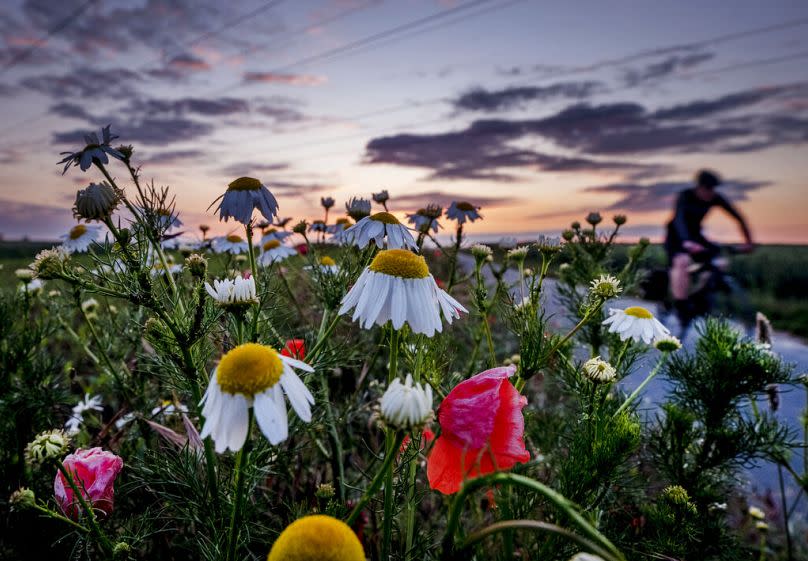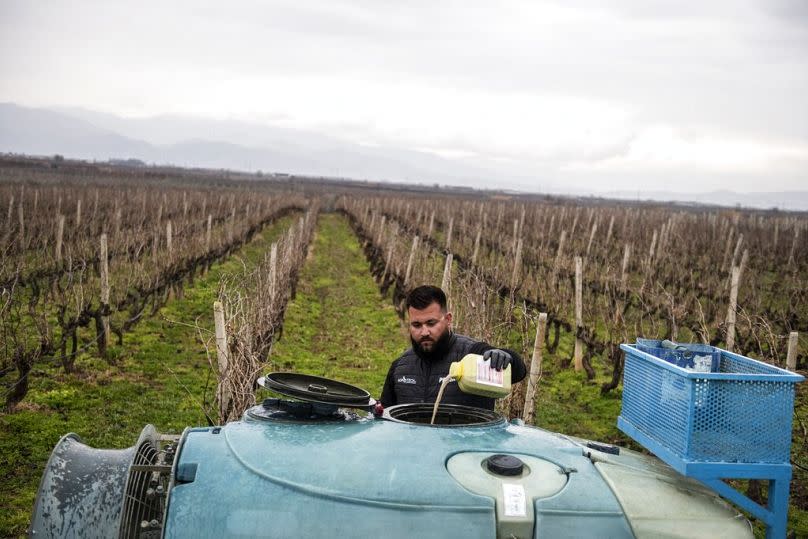As we try to balance the challenges of tackling climate change, promoting healthy diets and enabling farmer livelihoods, one thing is clear: sustainable agriculture is the only way forward.
These three major challenges encompass the three dimensions of sustainability: social, environmental and economic.
The most important question is: are we doing enough? Despite significant recent progress, there is clearly much more to be done.
It is clear that we need the support of the European Union to increase food security, tackle key challenges within the agricultural sector and contribute to the United Nations Sustainable Development Goals. I know I’m not the only one saying this, but it’s still worth repeating.
Now is not the time to make empty guarantees about ‘pesticide-free agriculture’, to spread inaccuracies about new technologies on the horizon, or to reduce complex issues to overly simple ones.
The stakes are simply too high, the issues too complicated and the world too fragile. This isn’t about promoting catchy slogans; it is about taking concrete steps towards a future sustainable agricultural system.
As an advocate for sustainable agriculture, I have witnessed first-hand our industry’s embrace of innovative and more environmentally friendly solutions.
Our vision for agriculture is clear: it requires technology, collaboration and results-oriented policies that embrace innovation and empower farmers.
This transition is both daunting and complicated, a true paradigm shift in the way we approach food production. But it is a necessary transition if we want to care for a growing world population while preserving our planet’s resources.
Turning challenges into opportunities
I firmly believe that EU policymakers have an important role to play in the transition to sustainable agriculture.
We need a policy framework that drives agreed outcomes and provides sufficient flexibility for farmers to implement the best solutions for their specific land conditions and needs.

First, this requires the approval of a new generation of pesticides. Yes, we still believe that pesticides remain one of the most effective solutions for farmers to protect their crops against pests and diseases.
But for example, we urgently need new regulations to approve biopesticides. Biopesticides offer farmers promising alternatives to some conventional pesticides.
That’s why our members have committed to investing €4 billion in the development and commercialization of new and more effective biopesticides by 2030. To date, our sector has invested €1.75 billion in the development of innovative new biopesticides.
Europe is lagging behind, but this can change
However, in the field of biopesticides, the EU lags far behind other competitive agricultural markets. It takes an average of seven years to bring a biopesticide to market in the EU, compared to two to three years elsewhere.
Furthermore, the return on investment in Europe is 30% below the global average for biopesticides. This puts Europe at a significant competitive disadvantage – and explains why these solutions are not easily available in the EU.


We also need more digital and precision farming tools to reduce the carbon footprint of agricultural practices and ensure farmers can use resources more efficiently.
The potential for this new technology is enormous, but it will take political will and financial support to make it a reality. For example, farmers in other parts of the world have access to using drones for spot applications of pesticides, while in the EU drones still fall under the aircraft category and applications are therefore illegal.
In addition, we hope for a pragmatic and evidence-based legislative framework for plants, developed by New Genomic Techniques.
Other regions are already benefiting from this planting technology: in the US we have high oleic soybeans, which contain 80% more oleic acid and 20% less saturated fatty acids.
Meanwhile, Japan has developed and approved a biotech tomato rich in GABA, an amino acid known for its benefits to human health.
Let’s make farmers succeed
From ensuring food security and commodity affordability to strengthening resilience to climate change, sustainability presents both challenges and opportunities for EU agriculture.
We must turn challenges into opportunities. We believe our sector is part of the solution and has the innovations to tackle some of the challenges ahead.
We therefore ask EU policymakers to give farmers access to a comprehensive set of agricultural tools – the “full toolbox”. Farmers need real, practical solutions. By providing the right support, we can help them farm smarter and thus improve their sustainability.
Sometimes it is about knowledge sharing; other times it involves private partnership solutions or a robust regulatory framework.
What is clear is that without collaboration and a shared vision we will not find long-term solutions. We must work together to overcome the challenges and seize the opportunities that sustainable agriculture offers. Our industry is fully committed to this objective and is prepared to work with all stakeholders towards this common goal.
This is an open invitation, which I hope will be accepted. As I said, the stakes are too high, the issues too complex, and the world too dependent on taking the right actions to work in silos or isolation – or worse, to remain divided.
By working together we can have a significant impact on our environment, the livelihoods of our farmers and ultimately the future of our planet.
Olivier de Matos is Director General of CropLife Europe. He is also former Secretary General of the European Center for Ecotoxicology and Toxicology of Chemicals (ECETOC).
Contact us at view@euronews.com to send pitches or submissions and join the conversation.